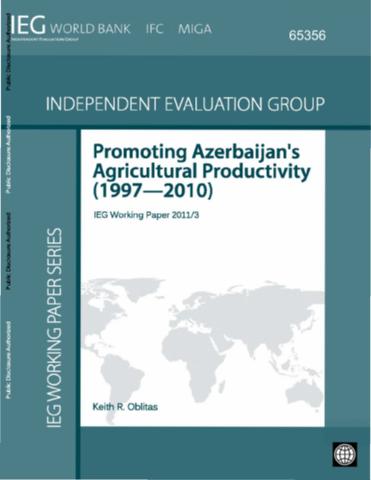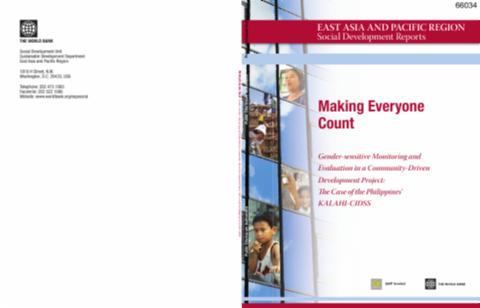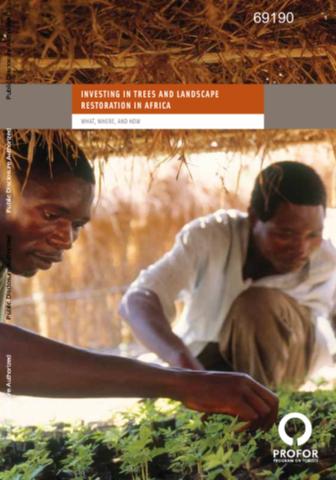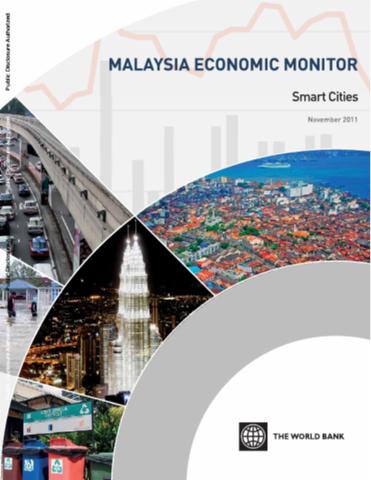The World Bank is a vital source of financial and technical assistance to developing countries around the world. We are not a bank in the ordinary sense but a unique partnership to reduce poverty and support development. The World Bank Group has two ambitious goals: End extreme poverty within a generation and boost shared prosperity.
- To end extreme poverty, the Bank's goal is to decrease the percentage of people living on less than $1.25 a day to no more than 3% by 2030.
- To promote shared prosperity, the goal is to promote income growth of the bottom 40% of the population in each country.
The World Bank Group comprises five institutions managed by their member countries.
The World Bank Group and Land: Working to protect the rights of existing land users and to help secure benefits for smallholder farmers
The World Bank (IBRD and IDA) interacts primarily with governments to increase agricultural productivity, strengthen land tenure policies and improve land governance. More than 90% of the World Bank’s agriculture portfolio focuses on the productivity and access to markets by small holder farmers. Ten percent of our projects focus on the governance of land tenure.
Similarly, investments by the International Finance Corporation (IFC), the World Bank Group’s private sector arm, including those in larger scale enterprises, overwhelmingly support smallholder farmers through improved access to finance, inputs and markets, and as direct suppliers. IFC invests in environmentally and socially sustainable private enterprises in all parts of the value chain (inputs such as irrigation and fertilizers, primary production, processing, transport and storage, traders, and risk management facilities including weather/crop insurance, warehouse financing, etc
For more information, visit the World Bank Group and land and food security (https://www.worldbank.org/en/topic/agriculture/brief/land-and-food-security1
Resources
Displaying 4561 - 4565 of 4907Compulsory Land Acquisition and Voluntary Land Conversion in Vietnam
This publication is the product of a multi-year cluster analytical and advisory work on social and land conflict management of the World Bank office in Hanoi, which aimed to assist Ministry of Natural Resources and Environment (MoNRE) to improve the land acquisition and conversion process to achieve more sustainable development during the current rapid urbanization and industrialization process.
Promoting Azerbaijan's Agricultural Productivity (1997-2010)
The objective of this study is to evaluate the World Bank Group's (International Bank for Reconstruction and Development [IBRD], International Development Association [IDA], and International Finance Corporation [IFC]) effectiveness in promoting growth in agricultural productivity in Azerbaijan, and to derive lessons that may be relevant for the World Bank Group's future engagement in Azerbaijani agriculture.
Making Everyone Count
The Philippines has made significant progress in empowering women and in advancing gender equality. The government's policy on gender equality and women's empowerment has prioritized women's economic empowerment, advancing human rights and enhancing gender-responsive local governance. All these priority concerns are integral components of poverty reduction programs in the Philippines. The Philippines has made significant progress in empowering women and in advancing gender equality.
Investing in Trees and Landscape Restoration in Africa
Reforestation measures for degraded lands, strategies for the sustainable management of forest resources, and agroforestry practices that incorporate trees into farming systems are increasingly demonstrating their promise for producing commercialized tree products. Although the level of investment so far has remained modest, the challenge is to find ways to scale up promising investments in a way that will have a clear impact at the landscape level.
Malaysia Economic Monitor, November 2011
The Malaysian economy decelerated as solid domestic demand was not sufficient to offset a weakening external environment. Private consumption growth continued at a healthy pace. Favorable rubber and palm oil prices drove up incomes of smallholders while continued employment and wage growth supported urban incomes. In contrast, fixed investment was more volatile, with private investment showing signs of picking up while public investments lagged.










